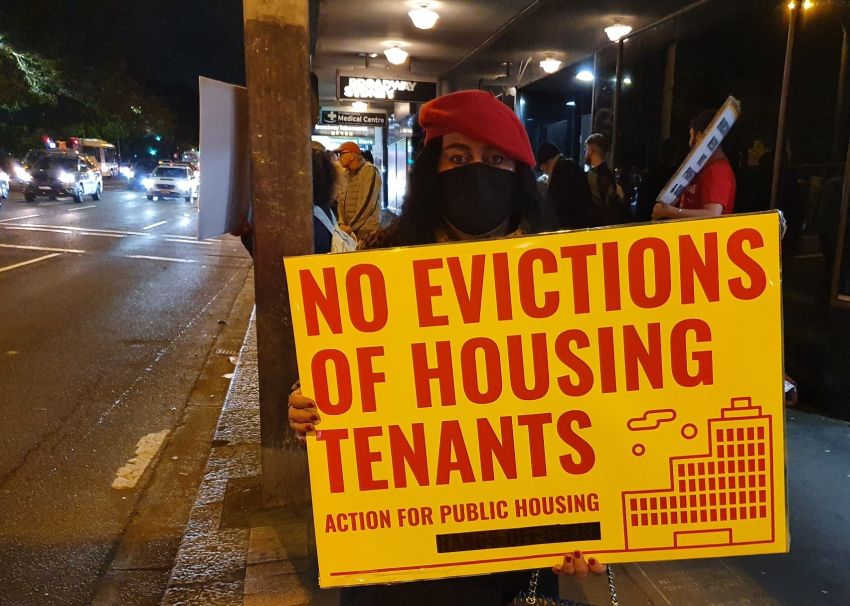
After the December Roy Morgan polls were released, giving NSW Labor a 10% lead over the Liberal-National Coalition (two-party preferred) and with the government dogged by scandals and corruption allegations, Labor quickly became the bookies’ favourite to win the New South Wales election on March 25.
But now, seven weeks out, Labor is not looking quite as cocky as it was in December. It is already a scandal-plagued campaign with everything from who wore what to Dominic Perrottet’s 21st birthday to more Labor integrity scandals.
What’s more, as with the 2022 federal election, voters are still fed up with self-interest in Coalition and Labor governments and the lack of action on climate change.
Most of all, citizens are fed up with their state being captive to mega-lobbies at taxpayers’ expense, while frontline workers and those struggling to find work remain grossly overworked, underpaid and under supported.
People have not forgotten the job frontline workers did during the pandemic, and Labor still refuses to mandate safe ratios.
Gambling with NSW’s future
NSW Labor’s right faction leader Chris Minns wanted a bet both ways on gambling reforms, most notably the cashless gaming card, a measure strongly supported by Unions NSW.
Minns insisted on another “trial” of the cashless gambling card, then said it would be held in “regional areas”, which — intentional or not — would minimise ClubsNSW losses, while giving the gambling industry another year to find a way to shut it down.
Refusing to support cashless gambling outright not only put Minns at loggerheads with the union umbrella, but against large chunks of the electorate as well.
If Labor and ClubsNSW underestimate the appetite for gambling reform in the post-Bergin world, they have comprehensively failed to read the room.
ClubsNSW also just fired its CEO of 15 years after he publicly had a go at Perrottet’s religion. He probably took his little black book of political affiliations with him.
Given that Perrottet committed on February 6 that NSW pubs and clubs would go cashless in five years, Minns may have held onto his hand a little too long on this one.
The NSW Greens’ “Pull the Pin on Pokies” campaign has been running for several months.
Fossil fuels and climate change
Yet another risk factor for the major parties is the ongoing fallout from bipartisan inaction on fossil fuels and climate change.
NSW has a lot of very unhappy fire and flood victims on the South Coast and in the Northern Rivers. Lismore is one Labor-held seat where many feel deserted by the government in their hour of need.
After the deadly and catastrophic floods last year, the disaster-ravaged community was promised a fast-track recovery, possibly land swaps, buy-backs or relocations through the new Northern Rivers Reconstruction Corporation. The $800 million corporation, co-funded by the federal government, was set up last year, but is reportedly already mired in the very red tape it was supposed to eliminate.
One former Labor election strategist even suggested that Green’s candidate Adam Guise will win Lismore.
NSW Greens
A growing loyalty to the Greens is being chalked up to delivery in education and housing, as well as disenchantment with the two-party system.
NSW Greens upper house MP Cate Faehrmann told AAP: “We’re still seeing the power of fossil fuel companies and the gambling industry on politics. They’re desperate to support parties that don't get captured by those interests.”
Roy Morgan’s December poll results back that claim. Support for the Greens rose 0.5 percentage points to 12%, while support for “Other parties and independents” was up 4.5 points to 21%.
Guise believes community anger continues to simmer because “people are really suffering”. He said that Labor has “a very small margin” and “people certainly want change”.
The Greens believe they can increase their representation in the Legislative Council to five, including their first Indigenous MP Lynda-June Coe.
Socialist Alliance
Another party quietly gaining ground in state elections is the ecosocialist Socialist Alliance (SA). The small party’s results last year in Victoria and Queensland reflect an electorate that is tired of the major parties and looking for real action on climate change.
At its recent National Conference, SA’s Merri-Bek councillor Sue Bolton commented on the declining support for major parties. She cited an Australian Election Study showing how their vote “collapsed to 68% from 80% in 2010”.
The Coalition’s vote from people under 40 years old has slumped to one in four voters.
SA is fielding an experienced team of community activists in the Legislative Assembly, on a “People before Profit” platform targeting housing, climate change and the rising cost of living.
Rearranging the deckchairs
The December Roy Morgan poll had Labor and the Coalition losing support to independents and minor parties: the Coalition down 3.5 percentage points to 33.5%, level with Labor on 33.5%, down 1.5 points.
Since 2007, both the major parties have failed to secure a primary vote of at least 40%.
Perrottet and Minns head to the March election leading parties that are more unpopular and with an even more disgruntled electorate than at last year’s federal election.
Labor polled a 10% lead in December, according to Roy Morgan, but if it wins on March 25, it may well have to deal with a diverse cross bench — just like their federal counterparts.